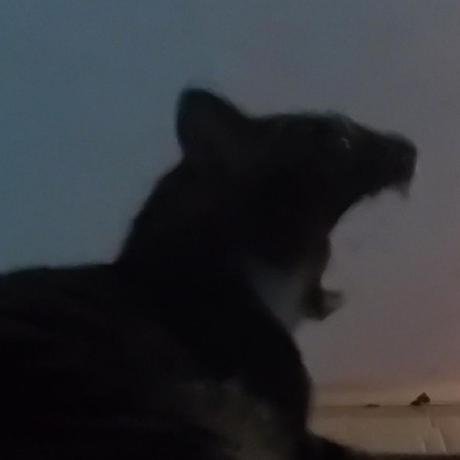what is Image Extractor?
Image Extractor is an MCP server designed for extracting and converting images to base64 format for LLM analysis, enabling AI assistants to process images efficiently.
how to use Image Extractor?
To use Image Extractor, install it via Smithery or manually from GitHub, and then utilize its tools to extract images from local files or URLs, or process base64-encoded images.
key features of Image Extractor?
- Extract images from local files and URLs
- Convert images to base64 format
- Automatically resize images for optimal LLM analysis
use cases of Image Extractor?
- Extracting images from user-uploaded files for analysis.
- Fetching images from the web for processing in AI applications.
- Converting images to base64 for integration with LLMs.
FAQ from Image Extractor?
- Can Image Extractor handle all image formats?
Yes! Image Extractor can process various image formats as long as they are supported by the underlying libraries.
- Is there a limit on image size?
Yes, the maximum image size is configurable, with a default limit of 10MB.
- How do I install Image Extractor?
You can install it via Smithery or manually by cloning the GitHub repository and following the installation instructions.
MCP Image Extractor
MCP server for extracting and converting images to base64 for LLM analysis.
This MCP server provides tools for AI assistants to:
- Extract images from local files
- Extract images from URLs
- Process base64-encoded images
How it looks in Cursor:
Installation
Via Smithery (Recommended)
The easiest way to install and use this MCP server is via Smithery.
For Claude Desktop
- Open your terminal and run:
npx @smithery/cli install @ifmelate/mcp-image-extractor --client claude
- The server will be automatically configured and ready to use in Claude Desktop.
For Cursor or Other Clients
For Cursor or other MCP clients, you can install the server from Smithery directly:
- Visit Smithery and go to the Image Extractor page
- Click on the "Connect" button and follow the instructions to install
Manual Installation
Since this package is only available in the Smithery registry and not in npm, you need to install it directly from GitHub:
# Clone and install
git clone https://github.com/ifmelate/mcp-image-extractor.git
cd mcp-image-extractor
npm install
npm run build
npm link
This will make the mcp-image-extractor command available globally.
Configuration
For Claude Desktop
After installing via Smithery, the server should be automatically configured. If you need to manually configure it, add the following to your Claude Desktop settings:
{
"mcpServers": {
"image-extractor": {
"command": "npx",
"args": ["--yes", "@smithery/mcp-image-extractor"]
}
}
}
Settings file location:
- macOS:
~/Library/Application Support/Claude/claude_desktop_config.json - Windows:
%APPDATA%\Claude\claude_desktop_config.json
For VSCode with Cline Extension
Add this configuration to the Cline MCP settings:
{
"mcpServers": {
"image-extractor": {
"command": "npx",
"args": ["--yes", "@smithery/mcp-image-extractor"]
}
}
}
Settings file location:
- macOS:
~/Library/Application Support/Code/User/globalStorage/saoudrizwan.claude-dev/settings/cline_mcp_settings.json - Windows:
%APPDATA%\Code\User\globalStorage\saoudrizwan.claude-dev\settings\cline_mcp_settings.json
For Cursor
You can configure Cursor to use this MCP server in one of the following ways:
Option 1: Using Cursor MCP Settings UI
Add this configuration through Cursor's MCP Settings UI:
{
"mcpServers": {
"image-extractor": {
"command": "npx",
"args": ["--yes", "@smithery/mcp-image-extractor"],
"disabled": false
}
}
}
Option 2: Using .cursor/mcp.json file
For local development or when working in a specific project, you can add a .cursor/mcp.json file in your project root:
{
"mcpServers": {
"image-extractor": {
"command": "node",
"args": ["/full/path/to/mcp-image-extractor/dist/index.js"],
"disabled": false
}
}
}
Or, if you've installed via npm link:
{
"mcpServers": {
"image-extractor": {
"command": "mcp-image-extractor",
"disabled": false
}
}
}
Important Note for Cursor Users: If you see "Failed to create client" error, try these alternatives:
Option 1: Use direct GitHub installation
git clone https://github.com/ifmelate/mcp-image-extractor.git cd mcp-image-extractor npm install npm run build npm linkThen configure in
.cursor/mcp.json:{ "mcpServers": { "image-extractor": { "command": "mcp-image-extractor", "disabled": false } } }Option 2: Clone and run locally
git clone https://github.com/ifmelate/mcp-image-extractor.git cd mcp-image-extractor npm install npm run buildThen configure in
.cursor/mcp.json:{ "mcpServers": { "image-extractor": { "command": "node", "args": ["/full/path/to/mcp-image-extractor/dist/index.js"], "disabled": false } } }
Configuration Options
When connecting via Smithery UI, you can configure:
- port: The port number for the server (default: 8000)
- maxImageSize: Maximum image size in bytes (default: 10485760)
- allowedDomains: Comma-separated list of allowed domains for URL extraction (default: all domains allowed)
Available Tools
extract_image_from_file
Extracts an image from a local file and converts it to base64.
Parameters:
file_path(required): Path to the local image file
Note: All images are automatically resized to optimal dimensions (max 512x512) for LLM analysis to limit the size of the base64 output and optimize context window usage.
extract_image_from_url
Extracts an image from a URL and converts it to base64.
Parameters:
url(required): URL of the image to extract
Note: All images are automatically resized to optimal dimensions (max 512x512) for LLM analysis to limit the size of the base64 output and optimize context window usage.
extract_image_from_base64
Processes a base64-encoded image for LLM analysis.
Parameters:
base64(required): Base64-encoded image datamime_type(optional, default: "image/png"): MIME type of the image
Note: All images are automatically resized to optimal dimensions (max 512x512) for LLM analysis to limit the size of the base64 output and optimize context window usage.
Example Usage
Here's an example of how to use the tools from Claude:
Please extract the image from this local file: images/photo.jpg
Claude will automatically use the extract_image_from_file tool to load and analyze the image content.
Please extract the image from this URL: https://example.com/image.jpg
Claude will automatically use the extract_image_from_url tool to fetch and analyze the image content.
Docker
Build and run with Docker:
docker build -t mcp-image-extractor .
docker run -p 8000:8000 mcp-image-extractor
License
MIT


